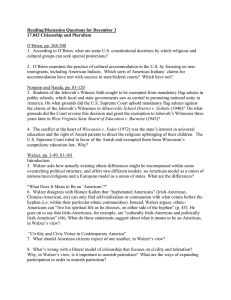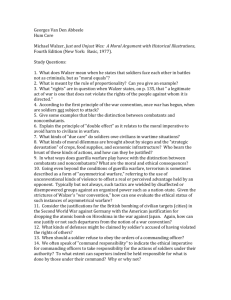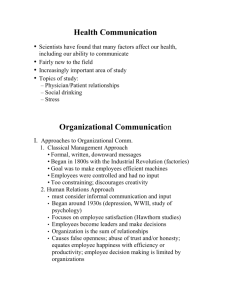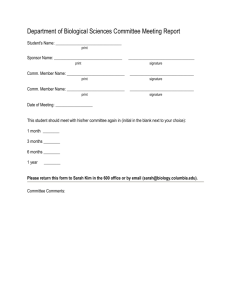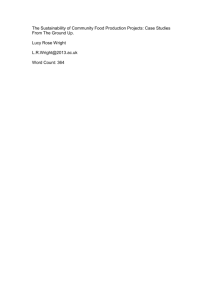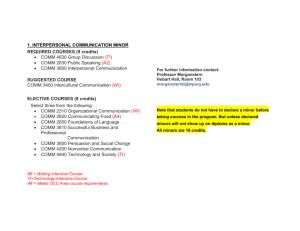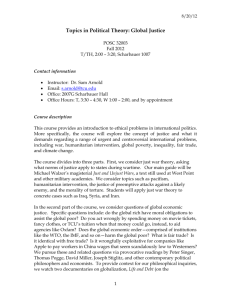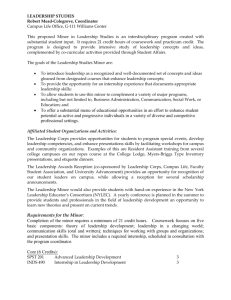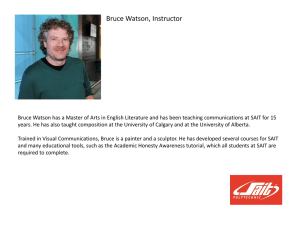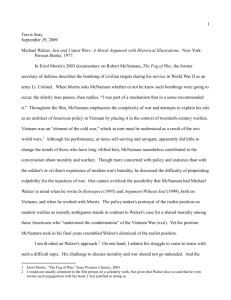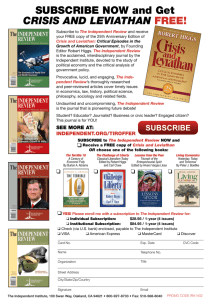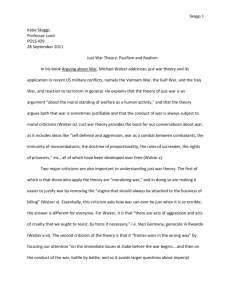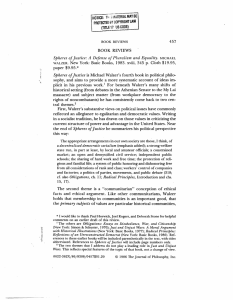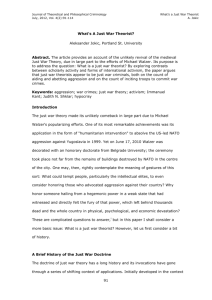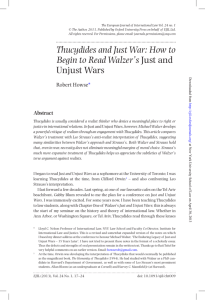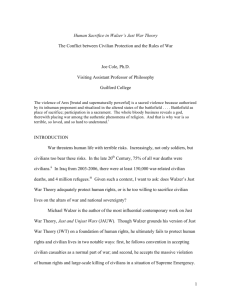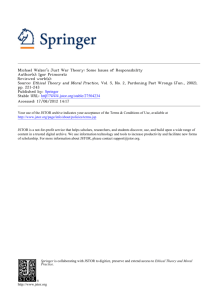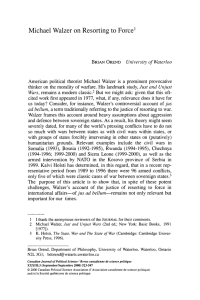DESCRIPTION: This course will examine in depth the legal, moral,
advertisement
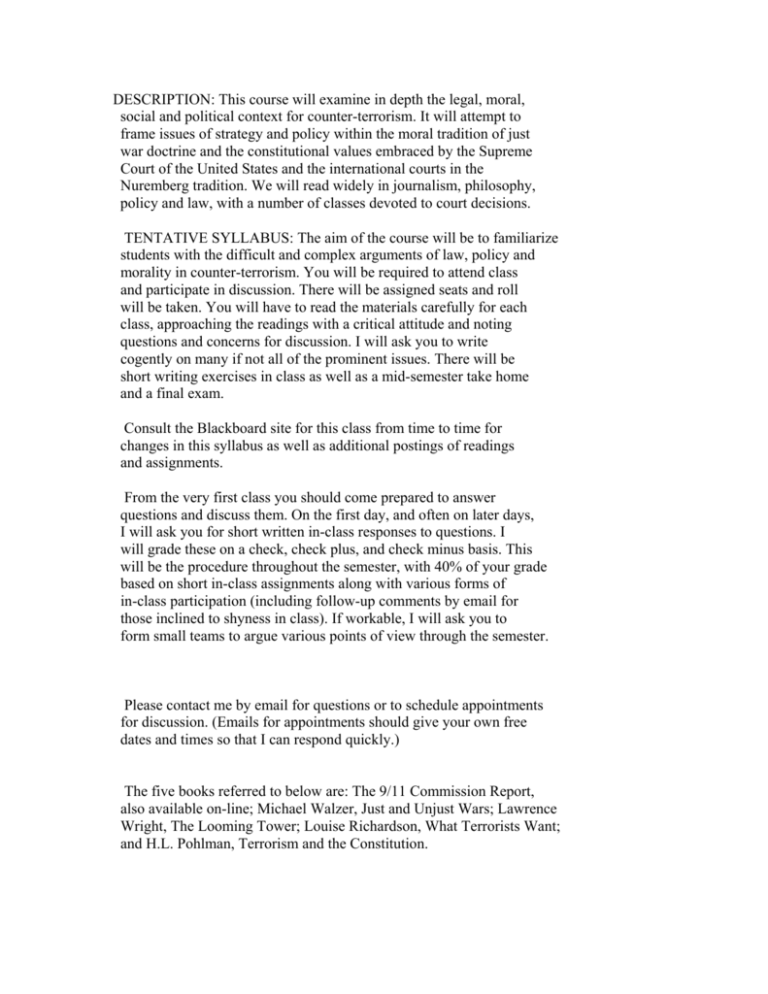
DESCRIPTION: This course will examine in depth the legal, moral, social and political context for counter-terrorism. It will attempt to frame issues of strategy and policy within the moral tradition of just war doctrine and the constitutional values embraced by the Supreme Court of the United States and the international courts in the Nuremberg tradition. We will read widely in journalism, philosophy, policy and law, with a number of classes devoted to court decisions. TENTATIVE SYLLABUS: The aim of the course will be to familiarize students with the difficult and complex arguments of law, policy and morality in counter-terrorism. You will be required to attend class and participate in discussion. There will be assigned seats and roll will be taken. You will have to read the materials carefully for each class, approaching the readings with a critical attitude and noting questions and concerns for discussion. I will ask you to write cogently on many if not all of the prominent issues. There will be short writing exercises in class as well as a mid-semester take home and a final exam. Consult the Blackboard site for this class from time to time for changes in this syllabus as well as additional postings of readings and assignments. From the very first class you should come prepared to answer questions and discuss them. On the first day, and often on later days, I will ask you for short written in-class responses to questions. I will grade these on a check, check plus, and check minus basis. This will be the procedure throughout the semester, with 40% of your grade based on short in-class assignments along with various forms of in-class participation (including follow-up comments by email for those inclined to shyness in class). If workable, I will ask you to form small teams to argue various points of view through the semester. Please contact me by email for questions or to schedule appointments for discussion. (Emails for appointments should give your own free dates and times so that I can respond quickly.) The five books referred to below are: The 9/11 Commission Report, also available on-line; Michael Walzer, Just and Unjust Wars; Lawrence Wright, The Looming Tower; Louise Richardson, What Terrorists Want; and H.L. Pohlman, Terrorism and the Constitution. The New World of Terror 1. "Some Planes," 9/11 Comm'n 1-70. 2. Terrorism and the counterterrorism, 9/11 Comm'n 71-144. 3. Charisma, Wright, 1-98. 4. And organization, Wright, 99-201. 5. Comm'n 145-253. 6. Following the thread, Wright 202-300. 7. Exiles, misfits, and the attack itself, Wright to end. 8. Comm'n 254-360. 9. A plan for the next time, Comm'n 361-428. Posner rebuttal and DeMott critique (see Course Documents with links in Blackboard). Cf. 'Progress Reports' 701-748. 10. The flights in more detail, skim the 9/11 Comm'n Third Monograph, and see the film (available in the library and elsewhere) Flight 93. Read the comment on airport security by Patrick Smith (under Course Documents). The Just War Tradition 11. Walzer, 1-50 12. Walzer to 124. 13. Walzer to 175. 14. Walzer to 224. 15. Walzer to 284 (skim last chapters). Rights and Freedoms 16. Surveillance, Pohlman 1-74. 17. Hamdi, Pohlman 75-135. 18. Rasul, Pohlman 137-190. 19. Moussaoui, Pohlman 191-249. 20. Military Commissions, Pohlman 251-end. The Question of Torture 21. The experience--and the motive. Ortiz and Sussman essays (see Course Documents). 22. Dershowitz Proposal and the problems of definition and restraint(see Course Documents). 23. Torture before the Israeli Supreme Court (see Course Documents). 24. Is torture different? (targeted killings in Course Documents). Counter-Terrorism Policy and the Nature of Terrorism 25. What's up? Richardson, introduction to 70. 26. Motives and tactics, Richardson 71-168. 27. Win, lose, draw? Richardson, 169-242.
